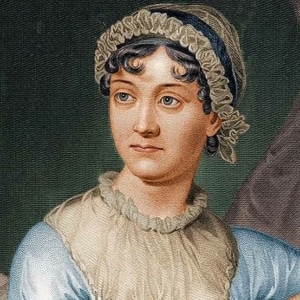DCPA NEWS CENTER
Enjoy the best stories and perspectives from the theatre world today.
Enjoy the best stories and perspectives from the theatre world today.
Published in 1815, Jane Austen’s Emma is a delightful novel about the happily single and privileged Emma Woodhouse. While she sees no value in marriage for herself, she can’t help but be a matchmaker for those around her.

Jane Austen
For those individuals who are only familiar with the book, there are at least eight book-to-screen adaptations of Emma including Clueless (1995) and its Indian-Hindi twin Aisha (2010), two big-screen movies of the same name (starring Gwyneth Paltrow in 1996, Anya Taylor-Joy in 2020), three made-for-TV miniseries (BBC in 1948, ITV in 1996, BBC in 2009) and the Emma Approved web series on YouTube (2013-14).
Now the Denver Center Theatre Company brings Kate Hamill’s fresh adaptation of Emma to the Wolf Theatre. According to PlayMakers Repertory Company, which produced the adaptation in 2022, Hamill delivers a “farcical retelling of a classic work” that’s “more akin to Fire Island, Clueless and Bridget Jones’s Diary.”
Fresh and updated it may be, but the play still ends with matchmaking, mishap and marriage! For those avid lovers of Jane Austen, consider these questions before and after the play to see if your answers change.
In discussing Emma, Jane Austen once said, “I’m going to take a heroine whom no one but myself will much like.” Do you like Emma? Is it necessary to like her to enjoy the book or play?
Emma the book opens with:
“Emma Woodhouse, handsome, clever, and rich, with a comfortable home and happy disposition, seemed to unite some of the best blessings of existence; and had lived nearly twenty-one years in the world with very little to distress or vex her.”
What themes are suggested in the first sentence of the book? What does it tell us about Emma Woodhouse?
Emma the play opens with the titular character at the wedding of Miss Taylor and Mr. Weston saying:
“You see this? (proudly) I did this. Yes! Me. All me. Aren’t I clever.”
What impressions does this give you of Emma Woodhouse? How does it set up the play?
What instances in the book or the play reveal that Emma is becoming more self-aware?
Marriage seems to be the primary focus of Emma’s endeavors, but not all marriages are good. Discuss the pairings in Emma and what makes the couples well suited (or not) to one another.
Discuss the games played in the novel or the stage adaptation — verbal, parlor and social behavior. Are they merely typical customs of the time or do they hold larger significance
Jane Austen was an early pioneer of the “free indirect discourse” writing style which allowed the narrator’s voice to slip into the character’s narrative to share words, thoughts or feelings. Similarly, Kate Hamill uses a theatrical convention whereby Emma “breaks the fourth wall” to speak directly to the audience. Were these techniques helpful or hurtful to telling the story? In what way?
All of Jane Austen’s works leverage communication, miscommunication, the danger in implying too much, etc. What do you think was the major miscommunication / misunderstanding in Emma? Discuss how each character played into this theme.
